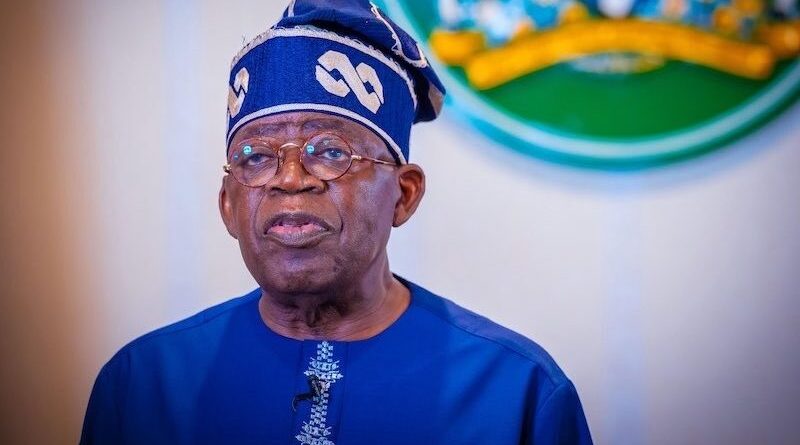Tinubu seeks NASS’ approval for $2.3bn external borrowing
President Bola Tinubu has requested the approval of the House of Representatives to raise over $2.3 billion from external sources to part-finance the 2025 budget deficit, refinance Nigeria’s maturing Eurobonds, and issue the country’s debut sovereign Sukuk in the international capital market.
The request was contained in a letter dated 22 September, and read by the Speaker of the House of Representatives, Abbas Tajudeen, during Tuesday’s plenary.
The letter was titled “Request for the Resolution of the National Assembly to Implement New External Borrowing in the 2025 Appropriation Act, Refinance Maturing Eurobonds and Issue Debut Sovereign Sukuk in the International Capital Market’”
According to the president, the external borrowing request includes a new loan of ₦1.84 trillion (about $1.23 billion at the budget exchange rate of ₦1,500 per dollar) to part-finance the 2025 budget deficit.
It also includes a plan to refinance Nigeria’s maturing Eurobonds worth $1.12 billion due on 21 November, as well as the issuance of a $500 million debut sovereign Sukuk in the international market.
Details of the borrowing plan
Mr Tinubu explained that the 2025 Appropriation Act provides for a total of ₦9.27 trillion in new borrowings, ₦7.43 trillion in domestic loans and ₦1.84 trillion in external borrowing to bridge the budget deficit.
He said the government intends to raise the funds through any of the following options: issuance of Eurobonds, loan syndications, bridge finance facilities, or direct borrowing from international financial institutions.
The president noted that the Eurobonds maturing in November 2025 valued at $1.118 billion and issued in 2018 at 7.625 per cent interest will be refinanced to avoid default and ensure Nigeria maintains its credit reputation in global markets.
“The plan is to refinance the maturing Eurobonds through issuance of Eurobonds, bridge finance from bookrunners, loan syndication, or direct borrowing from international financial institutions, if necessary, to avoid default. This is a standard practice in debt capital markets,” the letter stated.
Mr Tinubu added that Nigeria, being a regular issuer in the international capital market, remains confident it can raise the proposed funds subject to market conditions.
Debut $500m sovereign Sukuk
The president’s request also seeks approval for the issuance of a stand-alone $500 million sovereign Sukuk to attract Islamic investors and deepen Nigeria’s debt market.
Mr Tinubu said the federal government had successfully raised ₦1.39 trillion through Sukuk issuances in the domestic capital market between September 2017 and May 2025 to fund critical road projects. The external Sukuk, he said, would diversify funding sources and complement local borrowing for infrastructure development.
The proposed Sukuk, which may come with a credit guarantee from the Islamic Corporation for the Insurance of Investment and Export Credit (ICIEC), would attract a 3.5 per cent annual premium. If approved, 25 per cent of the proceeds would be used to refinance expensive debts, while the balance would go into infrastructure projects.
The new borrowing request comes months after the Tinubu administration secured National Assembly approval for a separate $7.8 billion external loan and €100 million facility earlier incorporated into the 2025 Appropriation Act.
That approval was sought to fund key infrastructure projects, including power, transport, and agricultural development, and to support fiscal stability amid revenue shortfalls.
With the fresh request, Nigeria’s debt management strategy continues to emphasise external refinancing and diversified funding mechanisms to reduce debt servicing costs and extend maturity profiles, even as concerns persist about the nation’s growing debt burden.
READ ALSO: Ebonyi govt begins N10bn gratuity backlog payment to local councils retirees
Next steps
Mr Tajudeen referred the president’s request to the House Committees on Aids, Loans and Debt Management for further legislative consideration.
The committees are expected to scrutinise the terms of borrowing, projected repayment obligations, and the implications for the 2025 fiscal framework before recommending approval to the House.


